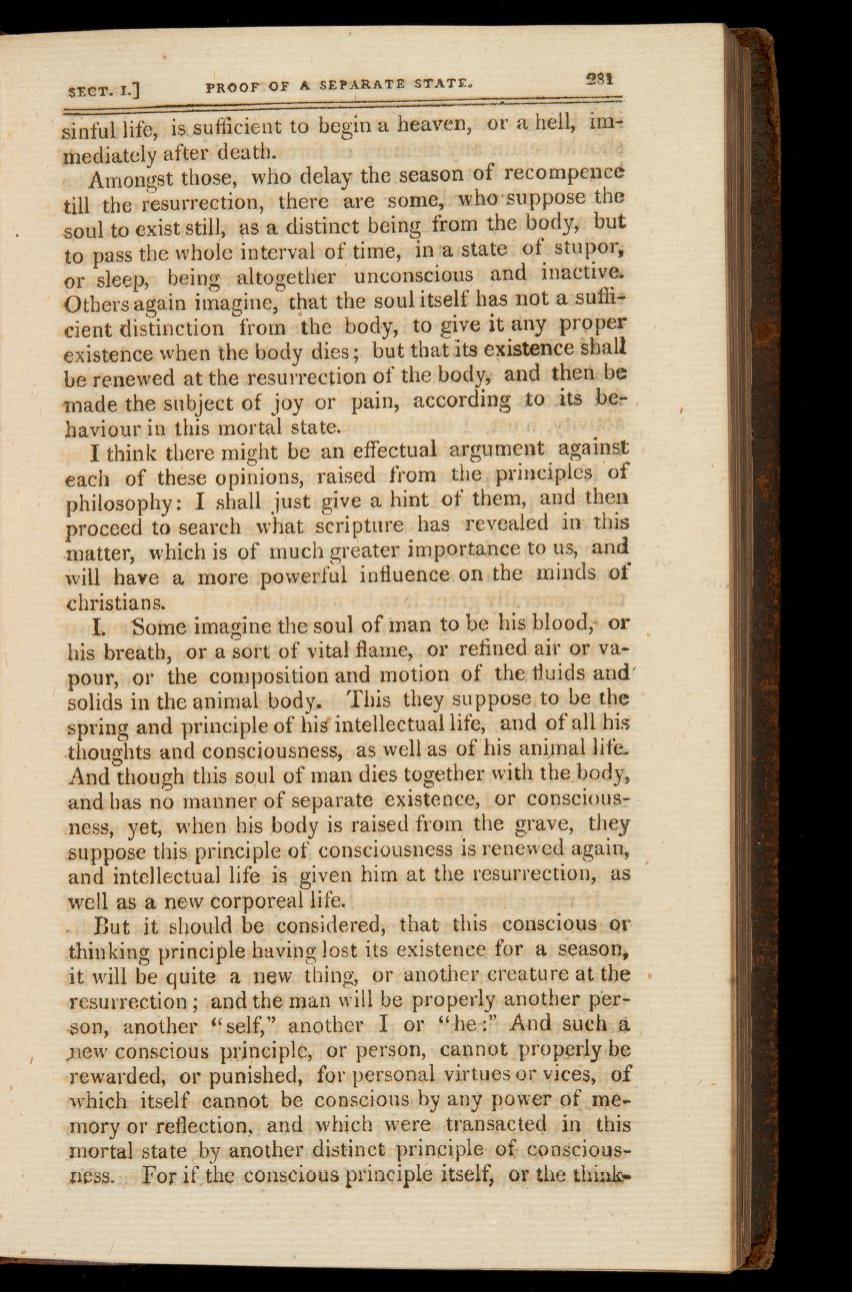

SECT.
T.)
PROOF
OF
A
SEPARATE STATE.
9g1
sinful
life,
is.
sufficient to begin
a
heaven, or
a
hell,
im-
mediately
after death.
Amongst those, who
delay
the season
of
recompence
till the resurrection,
there are
some,
who suppose the
soul
to exist
still,
as
a distinct
being from
the
body,
but
to
pass
the
whole
interval
of
time, in
a
state
of
stupor,
or
sleep,
being
altogether
unconscious
and
inactive.
Others again imagine,
that
the soul itself has
not a
sufli-
dent
distinction
from
the
body,
to
give
it
any
proper
existence when the body dies;
but
that
its
existence shall
be renewed
at
the resurrection
of
the body,
and then
be
made the subject
of
joy
or pain, according to
its be
haviour
in this
mortal
state.
I
think there might
be
an
effectual
argument against
each
of
these opinions,
raised
from the
principles
of
philosophy:
I
shall
just
give
a
hint
of
them, and
then
proceed
to
search what scripture
has
revealed
in
this
matter,
which
is
of
much
greater importance
to
us,
and
will
have
a
more
powerful influence on the minds
of
christians.
I.
Some imagine the soul
of
man to be
his
blood; or
his
breath, or
a
sort of
vital
flame,
or
refined
air or
va-
pour, or
the composition and motion
of
the
fluids
and'
solids
in the animal
body.
This
they
suppose
to be
the
spring and principle of
his intellectual
life,
and
of
all
his
thoughts and consciousness,
as
well
as
of
his
animal
life.
And though
this soul
of
man dies
together
with
the
body,
and
has no
manner
of
separate
existence,
or
conscious-
ness, yet, when his
body
is
raised from the
grave, they
suppose
this
principle
of
consciousness
is
renewed again,
and
intellectual
life
is
given him
at
the
resurrection,
as
well as
a
new
corporeal
life.
But it
should be considered,
that
this conscious
or
thinking principle
having
lost its existence for
a
season,
it
will
be
quite
a new thing,
or another creature at the
resurrection
;
and
the man
will
be
properly
another per
-
.son,
another
"self," another
I
or
"he.
:"
And such
a
new
conscious principle, or person,
cannot
properly
be
rewarded, or punished, for personal virtues or
vices,
of
which itself
cannot
be
conscious
by
any power
of me-
mory or reflection,
and
which were
transacted
in this
mortal state
by
another distinct principle
of
conscious-
ness.
For
if
the
conscious principlé
itself,
or the think-

















